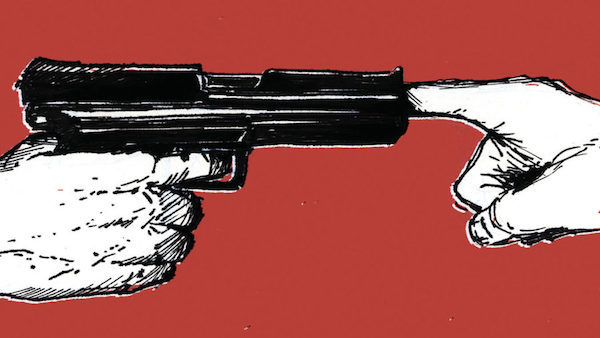(Dec. 11, full column is below) This age of social media is also the age of the insta-celebrity. It’s an age in which in-person human connections are diminished in favor of unfulfilling cyber-relations, an era in which loneliness grows while religious faith shrinks. It is an age in which someone almost nobody had heard of in 2004 could get elected president in 2008, as former President Barack Obama once accurately mused that he served as a “blank slate” upon which people of multiple views could project their wishes.
In my novel The Accidental Prophet, rereleased Dec. 8 for the first time in its intended single-volume format, I take the reader back to the dawn of the social-media age, which also happened to be the end of one millennium and the beginning of another. A satire of modern religion, media, and (to a lesser extent) politics, The Accidental Prophet is an account full of hijinks, but underneath the story itself flows an ecumenical call to faith — or, rather, an exploration of how God uses whatever vessel He can find to draw as many people to Himself as possible.
Meet blank slate Madison Lee Jones — Mad Jones, for short — who, at age 25 in 1998, when the story opens, finds himself stunningly grief-stricken and raging at God for a series of almost unimaginable tragedies. Working up a case against God in the form of religious theses — Thesis 12 says in bold letters that “God is a jerk!” — Mad ends up with 59 entries, turning Martin Luther’s 95 Theses on their head. But by Thesis 59, something has happened, and the anger has begun turning toward redemption.

The then-nascent social-media world, with the help of a New Orleans mime and a cast of drifters and grifters and some sincere uplifters, somehow takes a shine to Mad Jones and gives him a following. It is an online movement that established religious institutions distrust, the media misrepresent, and politicians try to exploit. Mad himself, a preternaturally attractive but emotionally limited schoolteacher, is less the agent of his own fame than its victim. Although he fills the role of the novel’s protagonist in a conventional sense, he is far less the moral center of the story than some of the helpers who become part of his inner circle.
Oh — and there’s lots of sex, too, but it’s all off screen as in 1940s movies, and there are also matters of race and media ethics, with some Bruce Springsteen and Counting Crows playing in the background.
And, running throughout the story full of twists and puzzles and what I hope readers will find to be plentiful humor, an ever-insistent question keeps reoccurring, the question that for faith is existential: Would … you … believe?
Six years ago, Adam Bellow, a hugely successful nonfiction publisher and son of Nobel Prize-winning novelist Saul Bellow, published this story as the Mad Jones trilogy in a fiction imprint he started. (For which I am eternally grateful.) Now, a semilinear heir of that imprint, Conservatarian Press, republishes it in whole rather than in three parts. It is available on Amazon in paperback and Kindle formats.
And if you read it, I hope you will find yourself, too, laughing a little, but nonetheless trying to decide if, in the end, faith is as evanescent as insta-celebrity, or if, instead, you find that, yes, you do believe.






